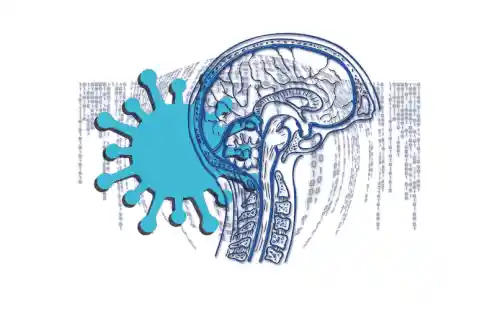
Custom T-Shirts: Last-Minute Gifts They'll Actually Love
Section: Arts
 Researchers in the United States have delved deeper into the long-term effects of COVID-19, particularly on individuals grappling with lingering symptoms, commonly referred to as Longcovid. While it has been acknowledged that brain damage can afflict Longcovid patients, a recent study has shed light on a specific aspect - the impact of the virus on the release of dopamine in brain cells.
Researchers in the United States have delved deeper into the long-term effects of COVID-19, particularly on individuals grappling with lingering symptoms, commonly referred to as Longcovid. While it has been acknowledged that brain damage can afflict Longcovid patients, a recent study has shed light on a specific aspect - the impact of the virus on the release of dopamine in brain cells.
Dopamine, a neurotransmitter crucial for transmitting information in the brain, is primarily produced and released in a specific group of nerve cells in the midbrain. These cells become active, especially during moments of unexpected positivity, triggering the release of endorphins in the reward system's nucleus accumbens, leading to feelings of happiness and well-being. Additionally, dopamine reaching the frontal brain is associated with heightened concentration and improved learning abilities.
The study focused on investigating how the coronavirus affects the release of dopamine. While headaches are a common symptom accompanying coronavirus infections, loss of smell and taste has also been widely reported. Recent research has indicated potential changes in the brain even six months after infection, contributing to a higher likelihood of psychiatric disorders.
Surprisingly, the study's findings revealed abnormalities in dopamine neurons in the brain, despite examining cells from the lungs, heart, and pancreas. Infected neurons displayed a significant alteration: instead of releasing dopamine, they emitted chemical signals that induced inflammation. Moreover, these cells lost their ability to grow and divide.
Co-author Shuibing Chen highlighted the significance of the findings, emphasizing that even a small group of infected cells could have serious consequences. The study, conducted by the Center for Genomic Health in New York, analyzed brain cells obtained from autopsies of individuals with and without COVID-19, as well as laboratory-cultured brain cells from deceased donors.
The study's summary stated, "We show that midbrain dopamine neurons derived from human pluripotent stem cells are selectively susceptible and permissive to severe acute respiratory syndrome coronavirus 2 (SARS-CoV-2) infection." The research was published in the specialized journal Cell.com.
Furthermore, the study contributes to a growing body of evidence suggesting that the stress induced by lockdowns and existential fears during the pandemic may increase the likelihood of broken heart syndrome, a condition also linked to dopamine.
These findings underscore the need for continued research into the long-term neurological effects of COVID-19, emphasizing the potential impact on mental health and the importance of addressing post-infection complications comprehensively.
Image by Gerd Altmann from Pixabay

Section: Arts

Section: Arts

Section: Business

Section: Business

Section: Arts

Section: Health

Section: Arts

Section: News

Section: News

Section: Arts
Health Insurance in Germany is compulsory and sometimes complicated, not to mention expensive. As an expat, you are required to navigate this landscape within weeks of arriving, so check our FAQ on PKV. For our guide on resources and access to agents who can give you a competitive quote, try our PKV Cost comparison tool.
Germany is famous for its medical expertise and extensive number of hospitals and clinics. See this comprehensive directory of hospitals and clinics across the country, complete with links to their websites, addresses, contact info, and specializations/services.
One of the most beautiful squares transforms into a summer stage every year for two days. The Gärtnerplatz Open-Air features a free music and cultural program across three stages, as well as street food from local vendors. On Saturday, the main stage at Gärtnerplatz offers something for everyone,...



No comments yet. Be the first to comment!